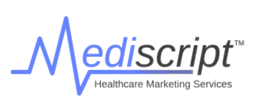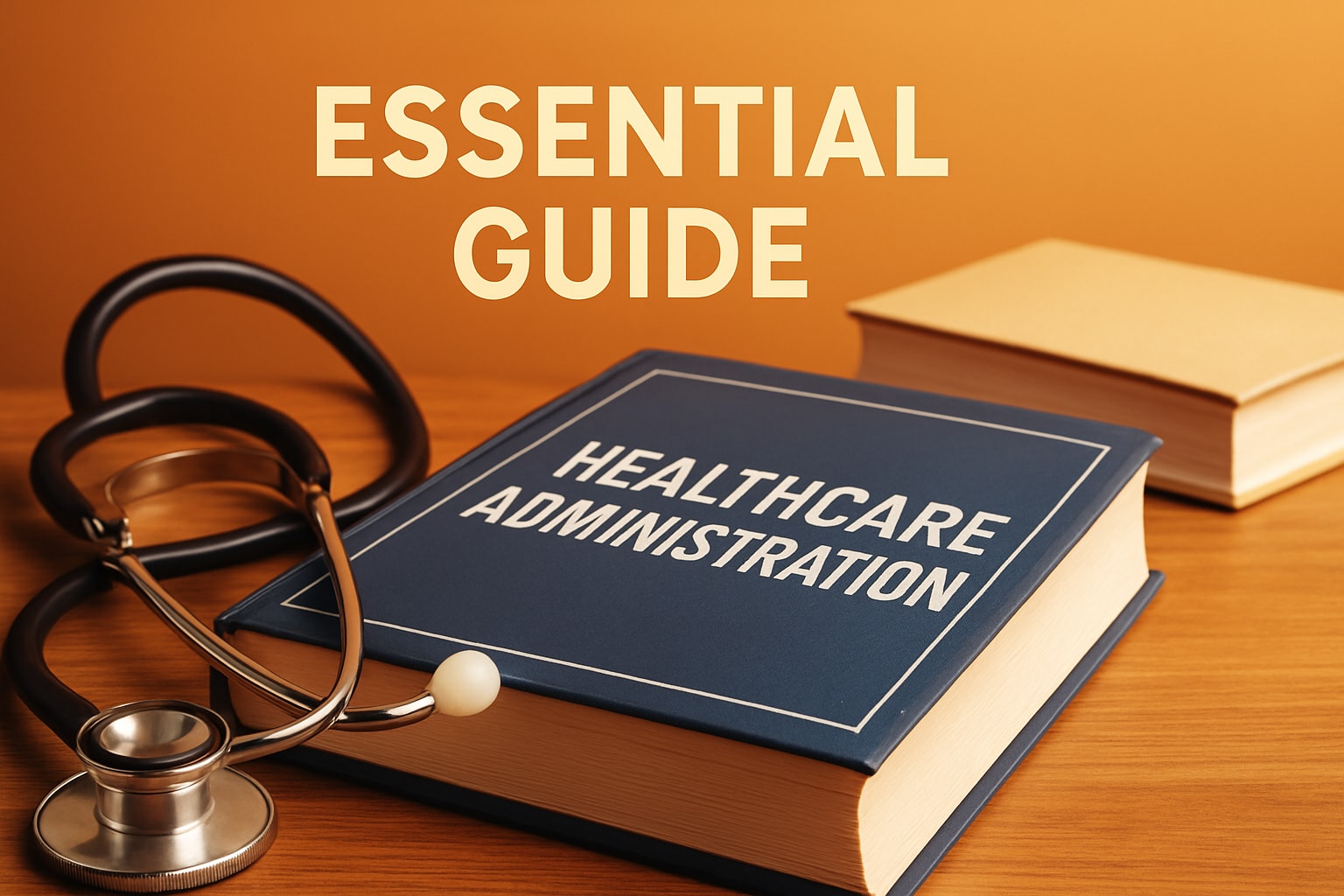Effective healthcare administration is the backbone of modern healthcare systems, ensuring organizations run smoothly and patient care remains top priority. To thrive in this dynamic field, staying updated with the best healthcare administration books is essential. This guide offers a comprehensive, current look at the most vital resources for 2025. Inside, you will find an overview of the field, criteria for choosing top books, in-depth reviews, industry trends, and expert recommendations. Whether you are a seasoned leader or just starting out, the right book can open new doors for your career and knowledge.
Understanding Healthcare Administration in 2025
Healthcare administration is rapidly transforming, requiring professionals to adapt to new demands, technologies, and expectations. As the landscape shifts, staying informed through high-quality healthcare administration books is critical for both aspiring and experienced leaders. Let’s explore what defines the field in 2025.

The Evolving Role of Healthcare Administrators
Healthcare administrators are responsible for leadership, compliance, patient safety, and resource management. In 2025, their role is even more complex as regulatory frameworks change and digital transformation accelerates.
For example, the impact of telehealth and remote care management has expanded administrative oversight beyond traditional settings. Administrators now coordinate virtual teams and manage digital patient records. According to Emerging Trends in Healthcare Administration 2025, adapting to these shifts is essential for organizational success.
Healthcare administration books help professionals understand these evolving responsibilities, ensuring they remain agile and effective in a dynamic environment.
Essential Skills and Competencies
In 2025, healthcare administrators need a blend of interpersonal, analytical, and decision-making skills. Data literacy is more important than ever, as is ethical leadership and financial acumen.
Administrators with expertise in healthcare analytics are in high demand, reflecting the growing emphasis on data-driven decisions. Ongoing education is crucial for professional growth and adapting to new challenges.
Healthcare administration books provide structured guidance on developing these essential skills, supporting both foundational learning and advanced competencies.
Industry Challenges and Opportunities
Healthcare administrators face challenges such as staffing shortages, escalating costs, and frequent regulatory updates. At the same time, there are opportunities to lead value-based care initiatives and advance health equity.
Responding to the impacts of global health crises has required administrators to be adaptable and resilient. Staying informed through current healthcare administration books is vital for navigating both obstacles and opportunities.
These resources offer insights into best practices, innovative strategies, and real-world case studies, empowering leaders to make informed decisions.
Why Books Remain Indispensable Learning Tools
Healthcare administration books remain foundational for professionals at every career stage. Unlike fragmented online materials, books offer depth, structure, and a comprehensive exploration of complex topics.
For instance, textbooks are routinely used in healthcare administration degree programs to build essential knowledge. Books also support lifelong learning and professional credentialing, helping administrators stay current with industry standards.
A well-chosen library of healthcare administration books ensures ongoing growth and the ability to meet evolving demands in the field.
Criteria for Selecting the Best Healthcare Administration Books
Selecting the right healthcare administration books can shape your expertise and career advancement. As the field evolves, knowing what makes a resource valuable is critical. Below, we break down the most important criteria for choosing books that will keep you at the forefront of healthcare administration in 2025.

Authoritative Content and Credibility
The foundation of any great healthcare administration book is the credibility of its authors and the reliability of its content. Look for books written by professionals with academic, clinical, or administrative backgrounds. These experts often reference evidence-based practices and the latest research to ensure accuracy.
Many of the best healthcare administration books are endorsed by respected organizations or used in academic programs. For example, Healthcare Administration Books Defining 2025 lists top titles that are shaping the field with up-to-date insights on AI, global management, and healthcare law.
Trustworthy sources transfer accurate knowledge and help you make informed decisions. Always check for recent editions to ensure the material reflects current standards.
Practical Application and Real-World Relevance
Healthcare administration books should bridge the gap between theory and practice. The most effective titles include case studies, practical tools, and actionable frameworks. These resources help you develop skills you can apply immediately in your workplace.
Books with real-world scenarios and decision-making exercises are especially valuable. For instance, interactive guides that walk you through budgeting or compliance challenges prepare you for daily responsibilities.
Prioritizing practicality ensures that your learning is not just theoretical but leads to better retention and on-the-job performance.
Coverage of Emerging Trends and Technologies
Staying current is essential in healthcare administration. The top healthcare administration books address emerging trends like telemedicine, artificial intelligence, and advanced healthcare IT systems. They also cover critical topics such as HIPAA compliance in digital health environments.
When evaluating a book, check its table of contents for chapters on new technologies and future-focused strategies. Books that discuss innovations help you anticipate industry changes and remain competitive.
Choosing resources with up-to-date content prepares you for both present challenges and future opportunities in healthcare administration.
Accessibility and Learning Support
Access to information in multiple formats is vital for today’s busy professionals. The best healthcare administration books are available in print, digital, and audio forms, allowing you to learn in the way that suits you best.
Look for features such as summaries, glossaries, and visual aids, which make complex concepts easier to understand. Some books also offer online companion resources or quizzes for interactive learning.
Prioritizing accessible and well-supported texts ensures that all learners, regardless of preference or ability, can benefit from these resources.
Top Healthcare Administration Books for 2025
Selecting the right healthcare administration books can transform your understanding of the field and set you on the path to success. Whether you are starting in a university program, moving into leadership, or advancing your career, the right resources matter. Below, we review the top titles for 2025, spanning foundational textbooks, specialized guides, and the latest releases, ensuring you have access to the most trusted and current information.

Comprehensive Textbooks for Foundational Knowledge
For those pursuing formal education or seeking a solid foundation, comprehensive textbooks remain the backbone of healthcare administration books. Titles such as “The Fundamentals of Healthcare Administration” are widely adopted in accredited programs, offering structured modules on operations, policy, and leadership. These resources cover both theory and practical applications, aligning with academic standards and credentialing requirements.
Recent surveys show that over 70% of health administration degree programs include these titles in their curricula. Textbooks often feature case studies, chapter summaries, and review questions, supporting students and professionals alike. Their structured content ensures you build a strong base for further specialization within healthcare administration books.
Specialized Books on Leadership and Management
Effective leadership is essential for navigating the complexities of modern healthcare. Specialized healthcare administration books focus on strategic leadership, team management, and organizational behavior. These titles explore topics like change management, conflict resolution, and fostering high-performing teams in healthcare settings.
For instance, books examining transformational leadership and adaptive strategies help readers understand the nuances of guiding organizations through periods of change. Many include real-world scenarios, decision-making frameworks, and reflective exercises. Mastering these concepts is critical for anyone aiming to lead with confidence using healthcare administration books.
Financial Management and Healthcare Economics
Financial acumen is a non-negotiable skill for administrators. Healthcare administration books dedicated to financial management provide guidance on budgeting, financial analysis, and economic principles specific to the healthcare sector. “Accounting in the Finance World” is a standout resource, offering clear explanations on fiscal planning and cost control.
These texts often include charts, sample budgets, and exercises to reinforce learning. Developing proficiency in these areas ensures that healthcare organizations remain sustainable and responsive to changing economic climates. Choosing the right healthcare administration books in this area is key for long-term success.
Legal, Ethical, and Policy Guides
Staying compliant with laws and ethical standards is fundamental. Legal and policy-focused healthcare administration books cover HIPAA, patient rights, and risk management. These resources help administrators interpret complex regulations and apply ethical frameworks in daily operations.
Notable titles provide up-to-date case law, sample policies, and practical checklists. Legal guides are indispensable for protecting both patients and healthcare organizations from liability. By referencing healthcare administration books with strong legal foundations, professionals can confidently navigate the evolving regulatory landscape.
Technology and Data Analytics in Healthcare Administration
Digital transformation is reshaping healthcare at every level. Healthcare administration books that focus on technology and data analytics explore topics such as health information systems, cybersecurity, and data-driven decision making. “Information Systems – A Manager’s Guide to Harnessing Technology” is a recommended text for understanding IT’s role in healthcare.
These books often include discussions of AI, telemedicine, and compliance with digital health regulations. Learning to leverage technology is now a core competency for administrators. As you select healthcare administration books, prioritize those that bridge the gap between management and technology.
Patient-Centered Care and Communication
Improving patient experience is at the heart of effective administration. Healthcare administration books on patient-centered care and communication offer guidance on cultural competence, empathy, and effective messaging. “Communication for Business Success” has been adapted for healthcare, helping administrators develop key interpersonal skills.
These guides typically provide communication models, scripts for difficult conversations, and strategies for engaging diverse patient populations. Focusing on this area within healthcare administration books can lead to better outcomes and higher patient satisfaction scores.
Recommended Reading for Career Advancement
Continuous learning is essential for professional growth. Many healthcare administration books are specifically designed for career advancement, offering advice on certification exams, interview preparation, and skill development. Guides aligned with ACHE or HFMA certification standards are especially valuable for those seeking credentialing.
Look for books that include practice questions, study planners, and tips from industry experts. Building a reading list from recommended healthcare administration books will keep your knowledge current and your career moving forward. For a curated selection of professional resources, explore the Professional reference guides collection.
Notable New Releases and Upcoming Titles for 2025
Each year, publishers release new healthcare administration books reflecting the latest trends and challenges. For 2025, anticipated titles include updated editions on post-pandemic administration, telehealth integration, and value-based care. These books address emerging topics and provide timely insights for professionals at every level.
Staying informed about upcoming releases ensures your library remains current and comprehensive. Monitor publisher announcements and professional forums to discover which healthcare administration books will shape the future of the field. Investing in new literature demonstrates a commitment to lifelong learning and adaptability.
Trends Shaping Healthcare Administration Literature in 2025
Staying ahead in healthcare administration means understanding the trends that shape the field’s literature. The evolution of healthcare administration books mirrors the industry’s rapid changes, offering insights into new challenges and opportunities for professionals. Let’s explore the key themes influencing book content in 2025.

Digital Health and Remote Administration
The rise of telehealth and remote patient management is a defining trend in healthcare administration books. Authors are focusing on digital health strategies, virtual care models, and the administrative implications of remote work. These books often provide real-world case studies and frameworks for managing virtual teams and digital operations.
For instance, topics like digital patient records, cybersecurity, and compliance in virtual environments are now standard. To keep pace with industry changes, many resources reference Healthcare Industry Trends to Watch in 2025 for deeper context on the digital transformation. As a result, professionals are turning to healthcare administration books that address both the opportunities and complexities of digital health.
Emphasis on Diversity, Equity, and Inclusion (DEI)
Healthcare administration books are increasingly emphasizing diversity, equity, and inclusion. Current literature explores DEI frameworks, strategies for advancing health equity, and ways to foster inclusive leadership within organizations. These books highlight practical approaches, such as:
- Building culturally competent teams
- Addressing social determinants of health
- Implementing equitable hiring and retention policies
By focusing on DEI, healthcare administration books prepare leaders to meet the needs of diverse populations and drive organizational change. This shift reflects the growing priority of equity and inclusion throughout the healthcare sector.
Integration of Data Analytics and Artificial Intelligence
Another major trend in healthcare administration books is the integration of data analytics and artificial intelligence. Authors detail how administrators can use data-driven insights for operational improvements and better patient outcomes. Typical content includes:
- Fundamentals of healthcare analytics
- Case studies on AI-driven decision making
- Guidance on implementing analytics in daily operations
With analytics now a core skill, healthcare administration books are essential for professionals seeking to understand new tools and technologies. These resources help bridge the gap between traditional management and data-informed leadership.
Focus on Interdisciplinary and Team-Based Care
Modern healthcare administration books emphasize collaboration across clinical and administrative teams. Literature in 2025 covers best practices for building effective, interdisciplinary teams that improve patient outcomes. Topics often include:
- Communication strategies for diverse groups
- Coordinating care between departments
- Leadership in team-based environments
This focus on teamwork highlights the importance of breaking down silos within organizations. By centering on interdisciplinary care, healthcare administration books equip leaders with the tools to foster cooperation and deliver better results.
Expert Recommendations and How to Use These Books Effectively
Healthcare administrators at every stage of their careers benefit from expert guidance on selecting and using healthcare administration books effectively. Practical advice, real-world strategies, and thoughtful resource curation are essential for maximizing learning and professional growth.
Advice from Leading Healthcare Administrators
Seasoned professionals often point to healthcare administration books as foundational resources for navigating the industry’s evolving challenges. Hospital CEOs and program directors recommend prioritizing titles authored by respected experts and those endorsed by reputable organizations.
One hospital executive shared, “Staying current through trusted books is vital for both new and experienced leaders.” Many experts also highlight the value of curated collections like Dr. Guide books for healthcare, which offer up-to-date, evidence-based content tailored to administrative roles.
Seeking peer recommendations and regularly reviewing new editions ensures that your reading list remains relevant. This approach helps administrators keep pace with best practices and regulatory updates.
Strategies for Integrating Books into Professional Development
Integrating healthcare administration books into daily routines and structured learning programs can accelerate skill development. Professionals often form study groups to discuss key concepts or use textbooks as the basis for workshops and in-service training.
Many organizations encourage reading as part of continuing education, allowing administrators to earn credits while expanding their knowledge. For example, incorporating book chapters into certification exam prep aligns learning with credentialing requirements.
By weaving healthcare administration books into professional development, administrators gain practical insights they can apply immediately. This structured approach not only supports individual growth but also strengthens teams.
Maximizing Learning with Supplementary Resources
To enhance the impact of healthcare administration books, professionals combine them with digital tools, webinars, and interactive platforms. Many leading titles now offer companion websites, online quizzes, and case study libraries that reinforce key concepts.
Exploring insights from the Integrated healthcare blog insights can further enrich understanding of real-world challenges and solutions in modern healthcare. This multimodal strategy supports different learning styles and encourages deeper engagement.
Pairing books with supplementary resources ensures that administrators stay adaptable in a rapidly changing environment. The result is improved retention, confidence, and readiness for new responsibilities.
Building a Personal Library for Ongoing Reference
A thoughtfully curated library of healthcare administration books serves as a long-term investment in professional success. Experts recommend selecting a mix of foundational texts, specialized guides, and the latest editions to cover all core competencies.
Regularly updating your collection with new releases ensures alignment with industry trends and regulatory changes. Organizing books by topic, such as leadership, finance, or patient care, makes it easy to find information when needed.
Maintaining a personal library supports lifelong learning and provides a reliable reference for complex decisions. This resource empowers administrators to respond confidently to new challenges.
Resources for Purchasing and Accessing Healthcare Administration Books
Finding the right healthcare administration books starts with knowing where to look. Today’s professionals need quick, reliable access to both foundational and current titles. Whether you prefer traditional bookstores, digital platforms, or free resources, there are options for every need and budget.
Where to Buy: Bookstores, Online Retailers, and Institutional Libraries
You can purchase healthcare administration books from a range of sources, each with unique advantages. University bookstores stock required course texts, while online retailers offer reviews and fast delivery. Professional association shops and specialty sites often feature curated selections. Libraries, both academic and hospital-based, provide borrowing options and research support.
| Source | Format | Notable Features |
|---|---|---|
| University Bookstores | Print/Digital | Academic alignment, latest editions |
| Amazon | Print/Digital | Wide selection, user reviews |
| Association Shops | Print/Digital | Certification exam guides, bundles |
| Patient care informational resources | Patient care titles, admin topics |
Before buying, compare prices, edition dates, and available formats. This ensures you access the most relevant healthcare administration books for your needs.
Digital Access and Ebooks
Digital access to healthcare administration books has transformed how professionals learn and stay updated. Ebooks offer instant downloads, allowing you to begin studying immediately. With mobile reading apps, you can highlight key points, search for terms, and adjust font sizes for comfort.
Benefits of digital formats include:
- Portability for busy schedules
- Searchable content for quick reference
- Easy updates to new editions
Many publishers provide online platforms with interactive features. This supports on-the-go learning and keeps healthcare administration books accessible anytime, anywhere.
Open Educational Resources and Free Textbooks
Open educational resources make healthcare administration books more accessible to students and professionals. Free textbooks, such as those found in the Open Textbook Library, offer peer-reviewed content without the high cost. Many institutions now recommend open-access materials for core courses.
Key examples include:
- Open Textbook Library’s healthcare administration section
- University-sponsored digital repositories
- Public domain classics on management and policy
Some patient care and administration resources are also available at no cost through specialized collections. Exploring these options can significantly reduce expenses while broadening your knowledge base.
Tips for Evaluating Book Quality and Relevance
Selecting the best healthcare administration books requires careful evaluation. Always check publication dates to ensure the content reflects current practices and regulations. Review author credentials for expertise in healthcare administration or related fields.
Consider these tips:
- Read user and peer reviews for insights
- Look for alignment with industry standards
- Ensure the book covers emerging topics in technology and policy
A quality healthcare administration book should support your professional goals and ongoing education. Regularly updating your library ensures you remain informed and competitive.






